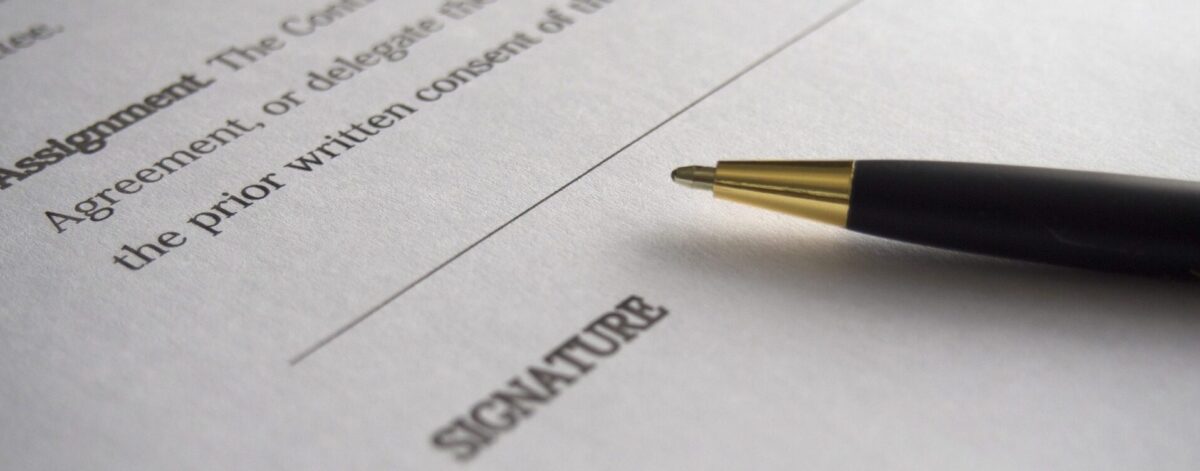By Jackson McKinley
Under Australian contract law, a contract needs 4 essential elements — offer, acceptance, intention to create and valid consideration. So, it is important to be able to distinguish between an “offer”, which can lead to the formation of a valid contract, and an “invitation to treat”. In this article, we will explore the divergent definitions of an invitation to treat and an offer and discuss some of the key cases that help us to clarify the distinction.
What is an Invitation to Treat?
An invitation to treat is an invitation to negotiate or to make an offer. It will not, by itself, create a legally binding agreement. The most common examples of an invitation to treat are advertisements, catalogues, and price lists. These types of communications are not offers, but rather an invitation to the public to make an offer to buy goods or services.
One of the most well-known cases in Australia that has dealt with the concept of an invitation to treat is Pharmaceutical Society of Great Britain v Boots Cash Chemists (Southern) Ltd [1953] 1 QB 401. In this case, the Court held that the display of goods in a self-service shop was an invitation to treat rather than an offer.[1] The customer’s selection of goods from the display was an offer, and the acceptance of the offer occurred at the checkout when the shop assistant accepted the customer’s payment.[2]
What is an Offer?
An offer is a definite and specific proposal that, if accepted, creates a legally binding agreement. It is an expression of willingness to contract on specific terms, and is capable of acceptance by the person to whom it is addressed. An offer can be made verbally, in writing, or by conduct. An offer can be made to individuals, groups or even the world.
One of the most famous cases in Australian contract law that has dealt with the concept of an offer is Carlill v Carbolic Smoke Ball Company [1892] 2 QB 484. In this case, the defendants advertised a product called the “smoke ball” which they claimed could cure the flu. The advertisement offered a reward of £100 to anyone who contracted the flu after using the smoke ball as directed. The plaintiff purchased and used the smoke ball as directed, but still contracted the flu. The defendants refused to pay the reward, arguing that the advertisement was not an offer. The court held that the Carbolic Smoke Ball Company’s advertisement was an offer made to the world, and that the plaintiff’s acceptance occurred when she used the smoke ball as directed.[3]
This differs slightly from the interpretation under US law. The Netflix documentary, ‘Pepsi, Where’s my Jet?’ explores The leading decision in Leonard v. Pepsico, Inc.[4], popularised by the recent Netflix documentary, ‘Pepsi, Where’s my Jet?’, establishes what is considered to be an offer. In that case, PepsiCo had a promotional campaign called “Pepsi Points” that offered various prizes in exchange for collecting points found on Pepsi products. One of the prizes listed was a Harrier Jet, a type of aircraft used by the US military. John Leonard, a customer, collected 7 million Pepsi Points and sent them to PepsiCo along with a cheque for $700,000, which he believed was the amount needed to claim the Harrier. Unlike the decision in Carlill, the Court ultimately held that that advertisement was not an offer, because the reasonable person would not have considered that the company was actually offering a jet in their promotion. [5]
It is important to understand the difference between an offer and an invitation to treat, because of the creation of binding legal rights and when they arise. You should always seek legal advice prior to signing any agreement and, in particular, before accepting an offer which would become legally binding.
Foulsham and Geddes notes that this article is written for the purpose of providing generalised information and not to provide specialised legal advice. If you require qualified legal advice in relation to contract disputes and on anything mentioned in this article, our experienced team of solicitors at Foulsham & Geddes are here to help. Please get in touch with us on 02 9232 8033 today to make an enquiry.
[1] Pharmaceutical Society of Great Britain v Boots Cash Chemists (Southern) Ltd [1953] 1 QB 401.
[2] Ibid.
[3] Carlil v Carbolic Smoke Ball Company [1892] 2 QB 484.
[4] 88 F. Supp. 2d 116.
[5] Leonard v. Pepsico, Inc., 88 F. Supp. 2d 116.

